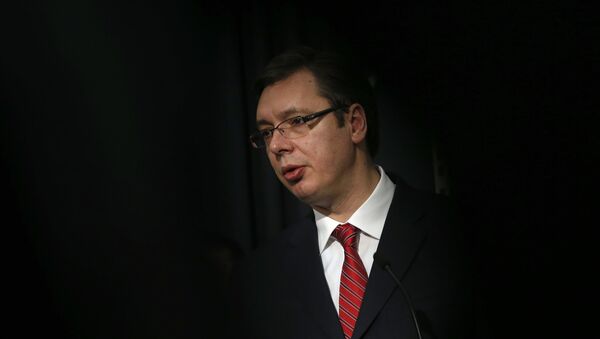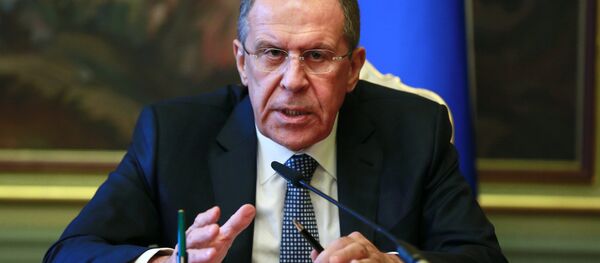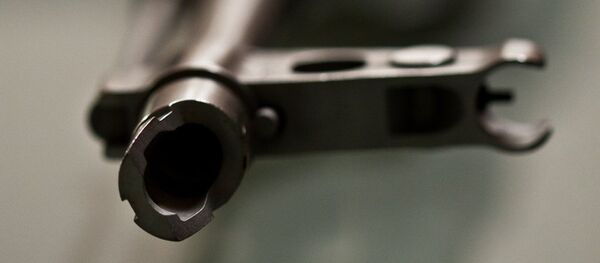Vucic arrived in Brussels for a meeting with EU foreign policy head Federica Mogherini on Monday, and had intended to take part in the Serbia-EU Intergovernmental Conference on accession negotiations Tuesday. But Croatia formally blocked the opening of the chapter in the EU accession rulebook regarding culture and education policy.
After being told by Mogherini that the negotiations were still blocked, Vucic left the EU capital on Monday night. "Serbia has been patient all along and tried not to react, but now we'll talk differently," Serbian media quoted the prime minister as saying.
Vucic stressed that he had "had enough" of Croatia's behavior, adding that he didn't want "to behave like some of his colleagues from the region, and wants to take into account Serbia's interests."
"There are things Serbia must implement along its EU path," Croatian Foreign Minister Davor Ivo Stier said, adding that the "full protection of national minorities is one of those matters."
At a meeting with Russian Foreign Minister Sergei Lavrov in Belgrade on Monday, Serbian Foreign Minister Ivica Dacic slammed Croatia for its "unprincipled position", telling reporters that "if Croatia is the one to decide about whether Serbia will enter the EU, then my interest just dropped somehow."
Dacic added that the EU would do better to "pay a lot more attention to what is happening in Croatia," referring to continued difficulties the country faces in integrating and accounting for the interests of its Serbian minority.
The Serbian foreign minister also warned that Croatia could one day use the weapons it receives from other NATO countries against Republika Srpska, the ethnic Serb entity in Bosnia, or even against Serbia itself. "When Croatia gets donations [of weapons] from NATO…who do they think Croatia would use those [rocket] launchers against? Rome, Budapest or Vienna? No, they are for Serbia," Dacic said.
For his part, Russia's foreign minister said that Brussels has been intensifying pressures on Belgrade to abandon its Russia-neutral policy. For instance, Lavrov noted that the EU has demanded that Serbia close the Russian-Serbian Humanitarian Center in Nis.
In the Serbian Prime Minister's absence, the Serbia-EU Intergovernmental Conference is expected to instruct Serbia to pay "special attention" with respect of minority rights, "including in the field of education, use of minority languages, access to the media and religious services in minority languages." EU Integration Minister Jadranka Joksimovic will sit in for the absent Serbian delegation.
Prime Minsiter Vucic has maintained that he would try to prepare his country for EU accession by 2020.





